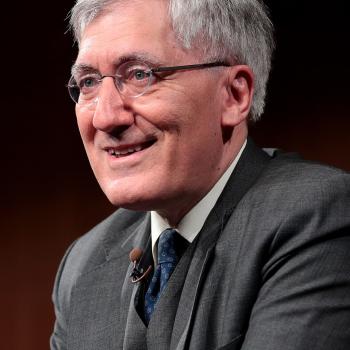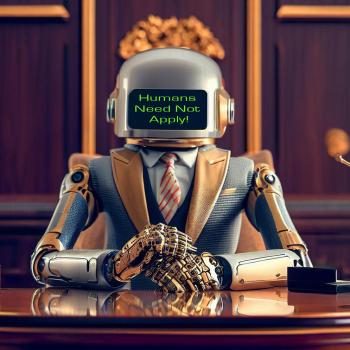
The 20 jobs that are safest from AI. Why traffic to the big porn sites is plummeting. Europe’s political controversy over air conditioning.
The 20 Jobs That Are Safest from AI
Microsoft conducted an elaborate study of what occupations will be the most and the least susceptible to being taken over by AI.
Fortune Magazine usefully sorted through the report and identified the 20 jobs with the lowest AI applicability score; that is, are least in danger of replacement. These are listed in ranked order, with #1 having the lowest AI applicability:
- Dredge operators
- Bridge and lock tenders
- Water treatment plant and system operators
- Foundry mold and coremakers
- Rail-track laying and maintenance equipment operators
- Pile driver operators
- Floor sanders and finishers
- Orderlies
- Motorboat operators
- Logging equipment operators
- Paving, surfacing, and tamping equipment operators
- Maids and housekeeping cleaners
- Roustabouts (oil and gas)
- Roofers
- Gas compressor and gas pumping station operators
- Helpers–roofers
- Tire builders
- Surgical assistants
- Massage therapists
- Ophthalmic medical technicians
Other jobs that look safe include industrial truck and tractor operators, highway maintenance workers, dishwashers, automotive glass installers, embalmers, nursing assistants, and phlebotomists.
So not doctors or surgeons or nurses, but nursing and surgical assistants will still be necessary to hook you up to the machines.
In general, people who work with their hands and backs will still be needed, since AI lacks hands and backs. And some tasks, such as massage and embalming will always require a human touch.
Next week: The professions most in danger of being replaced by AI.
Why Traffic to the Big Porn Sites Is Plummeting
In the U.S., twenty-four states have passed laws that require the presentation of age-verification ID in order to enter an online pornography site. The laws purpose is to prevent minors from accessing porn. They are also preventing quite a few adults from accessing porn.
In the states with age-verification laws, a New York University study found that traffic to the major free porn sites dropped by 51%.
On July 25, Great Britain implemented an age-verification law, the Online Safety Act, Since then, UK traffic to the major porn sites has dropped 47%.
Does that reflect the number of under-18-year-olds who are blocked from the sites? I don’t think so. I think a large number of adults don’t want to scan their ID, present a credit card, or have their face scanned because even if the information is immediately deleted they don’t want to be identified as using porn. This is because they still have shame.
To be sure, as the NYU study shows, the use of Virtual Private Network (VPN ) services, which hide the identity and whereabouts of users, has gone up, as has traffic to off-shore sites that don’t comply with the laws. Mainstream media reports focus on how some people are getting around the law, thus claiming that age-verification laws “don’t work.” (See here and here.)
Of course porn use remains high, and the technologically sophisticated–which includes lots of minors–can still access it. But if the big free sites are losing half their traffic, that is not insignificant.
And if the age-verification laws bring back to life an important moral restraint that has seemed all but lost in online anonymity–the faculty of feeling ashamed for doing something wrong–so much the better.
Europe’s Political Controversy Over Air Conditioning
A major political issue in Europe: air conditioning.
Nearly 90% of U.S. homes are air conditioned. We take that for granted. For us Americans, air conditioning is a summer necessity.
But in Europe, only 20% of homes have air conditioners. And in some countries, that number is even lower. In the UK, the percentage is only 5%. And nearly all of those are window units, not the central air that keeps Americans cool. In Germany, the percentage is only 3%. And Spain has a law that requires the few places that do have air conditioners to set them no lower than 80. (See this for the numbers.)
Europe usually has more temperate weather than America, but this summer and the last few summers have been really hot! People are dying from the heat, literally.
Yet regulations, building codes, expensive electricity, hard-to-rewire old houses, and environmentalist values have kept people sweltering in their homes.
Now much of the public is clamoring for the right to air conditioners. Cool air has become a political issue.
In the UK, 43% of the public is pro-air conditioning. The maverick Reform Party is making it an issue, with the ruling Labour Party and the opposition Conservatives dithering over it.
In France, where only 25% of homes have air conditioning, the right-wing parties are using the issue to drum up support.
Florida was said to be mostly uninhabitable until air conditioning turned it into a vacation and retirement paradise. Wags have said that the government in the United States started to go downhill when the invention of air conditioning allowed politicians to stay in Washington year round, rather than spending just a few months there like they used to until it got too hot, whereupon Congress adjourned.
But surely air conditioning is one of the many things that makes America great!














